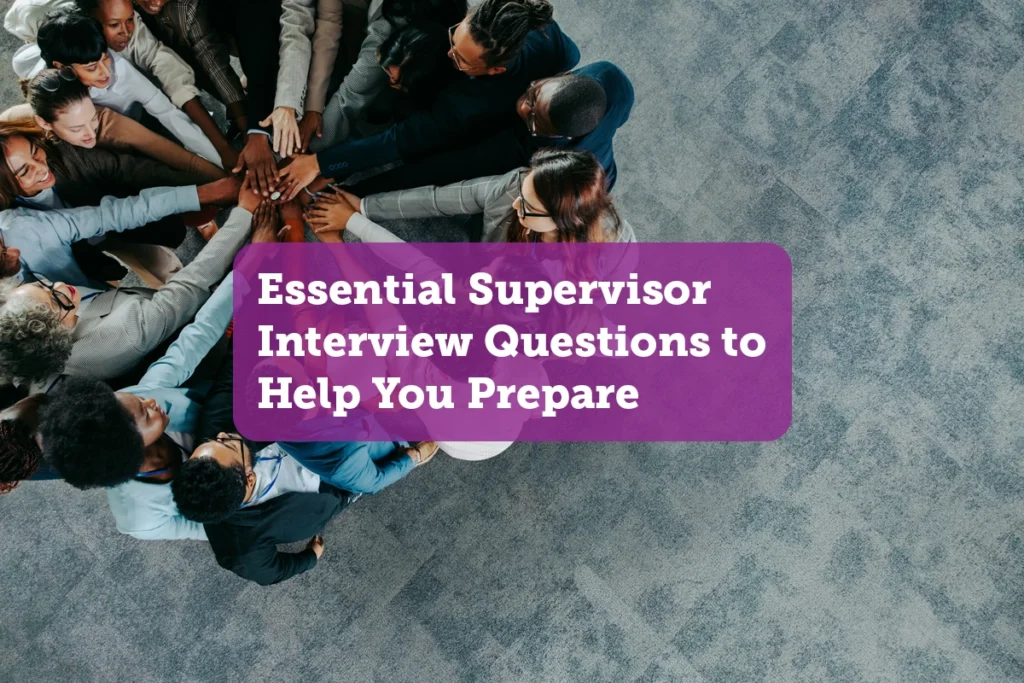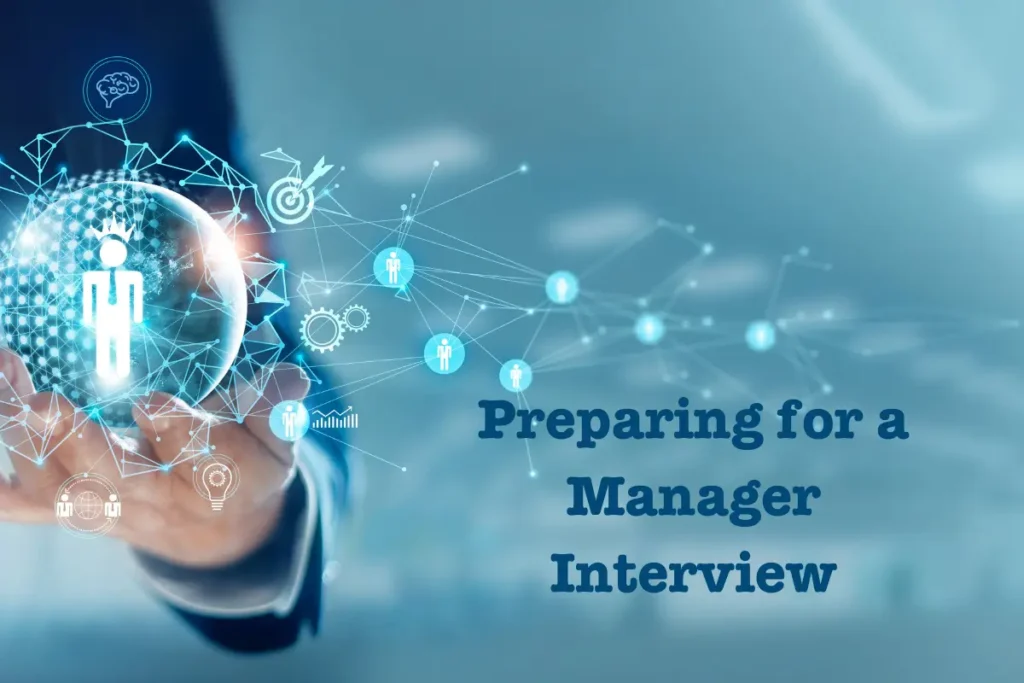Essential Supervisor Interview Questions to Help You Prepare
Being prepared for a supervisor interview is essential. It’s not just about having the right qualifications and experience; it’s also about being able to effectively communicate your skills and abilities in a way that showcases your potential as a leader. To help you in your preparation, this article will guide you through some key aspects of the supervisor role, common interview questions, and tips on how to provide impressive answers.

Understanding the Role of a Supervisor
Before diving into the interview questions, it’s important to have a clear understanding of the role you’re applying for. As a supervisor, your main responsibility is to oversee and manage a team or department, ensuring that tasks are completed efficiently and goals are met.
Supervisors play a critical role in the success of a team or department within an organization. They are not only responsible for ensuring that work is completed on time and within budget, but they also serve as mentors and coaches to their team members. A good supervisor is able to inspire and motivate their team to achieve their best performance, while also providing support and guidance when needed.
Key Responsibilities of a Supervisor
One of your main responsibilities as a supervisor is to provide guidance and support to your team. This includes delegating tasks, setting performance goals, and providing constructive feedback. Additionally, you will be responsible for resolving conflicts, motivating team members, and ensuring that all work is done in compliance with company policies and procedures.
Furthermore, supervisors need to have strong leadership skills. Examples of this are promoting connection and belonging among employees, being open to new ideas and experimentation, and being committed to the professional and intellectual growth of employees (Harvad Business Review, 2016). Leadership is a crucial point of being a supervisor, as having a good leader brings the whole team together.
Skills and Qualities of an Effective Supervisor
An effective supervisor possesses a combination of technical and interpersonal skills. Technical skills are essential to understand the processes and systems involved in the work, while interpersonal skills are crucial for building strong relationships with team members. Some key qualities to highlight during your interview include strong communication, leadership, problem-solving, and decision-making skills.
Moreover, a successful supervisor is adaptable and able to handle unexpected challenges with grace and composure. They must be able to think on their feet and make quick, yet well-thought-out decisions in high-pressure situations. Building trust and fostering a positive work environment are also key components of being an effective supervisor.
Preparing for a Supervisor Interview
Now that you have a clear understanding of the role and its responsibilities, it’s time to prepare for the interview itself. This preparation involves researching the company and role, as well as identifying your relevant skills and experiences that align with the supervisor position.
When preparing for a supervisor interview, it’s essential to not only focus on the technical aspects of the role but also to consider the soft skills that are crucial for effective leadership. Communication, problem-solving, decision-making, and conflict resolution are just a few examples of the soft skills that can set you apart as a strong supervisor.
Researching the Company and Role
Before your interview, take the time to thoroughly research the company you’re applying to. Get familiar with their mission, values, and any recent news or developments. This research will not only demonstrate your initiative, but it will also help you understand how your role as a supervisor aligns with the company’s goals and objectives.
Furthermore, delve into the company culture and try to understand the dynamics of the team you would potentially be leading. Having this insight can help you tailor your responses during the interview to highlight how you would be a good fit for the existing team and contribute positively to the company’s overall success.
Identifying Your Relevant Skills and Experiences
During the interview, it’s crucial to provide concrete examples of your skills and experiences that are relevant to the supervisor role. Reflect on your past experiences in leadership positions, and highlight any specific accomplishments or challenges you have faced. This will demonstrate your ability to handle similar situations in the future.
Moreover, consider how your leadership style and approach align with the company’s culture and values. Being able to articulate how you would lead and motivate your team in a way that resonates with the organization’s ethos can significantly strengthen your candidacy for the supervisor position.
Common Supervisor Interview Questions
Now let’s dive into some common supervisor interview questions that you are likely to encounter. These questions will help the hiring manager assess your suitability for the role and your ability to handle various managerial tasks.
Questions About Leadership and Management
One common question you might be asked is, “How do you motivate your team?” When answering this question, it’s important to provide a specific example of how you have motivated your team in the past. Discuss any strategies or techniques you have used, such as setting clear goals, providing recognition and rewards, or fostering a positive work environment.
Effective leadership and management involve more than just motivation. Another important aspect is delegation. You may be asked, “How do you delegate tasks to your team members?” In your response, highlight your ability to assess individual strengths and weaknesses, assign tasks accordingly, and provide necessary guidance and support. Additionally, mention how you ensure clear communication and accountability throughout the delegation process.
Questions About Conflict Resolution
Conflict resolution is a crucial skill for a supervisor. You might be asked a question like, “Tell me about a time when you had to resolve a conflict within your team.” In your response, emphasize your ability to remain calm and objective in tense situations, your skills in active listening and mediation, and how you successfully reached a resolution that satisfied all parties involved.
Another important aspect of conflict resolution is prevention. You may be asked, “How do you prevent conflicts from arising within your team?” In your answer, discuss your approach to fostering open communication, promoting a culture of respect and understanding, and addressing any potential issues proactively. Highlight any conflict resolution training or workshops you have implemented to equip your team members with the necessary skills to handle conflicts effectively.
Questions About Teamwork and Collaboration
Supervisors often need to foster teamwork and collaboration within their teams. A question you might face is, “How do you promote collaboration among team members?” In answering this, discuss strategies you have used, such as regular team meetings, assigning collaborative projects, or creating a supportive and inclusive work environment.
In addition to promoting collaboration, it is essential to address any challenges that may arise within a team. You may be asked, “How do you handle conflicts or disagreements among team members?” In your response, highlight your ability to facilitate open and respectful discussions, encourage active listening, and guide the team towards finding mutually beneficial solutions. Discuss any conflict resolution techniques or team-building activities you have utilized to strengthen relationships and foster a harmonious work environment.
How to Answer Supervisor Interview Questions
When answering supervisor interview questions, it’s important to structure your responses effectively to ensure clarity and coherence.
Preparing for a supervisor interview involves more than just rehearsing answers; it requires a deep understanding of the role and the ability to showcase your skills and experiences effectively.
Structuring Your Responses
Start by restating the question to show your understanding and then provide a concise and relevant answer. Use the STAR method (Situation, Task, Action, Result) to structure your response and highlight specific examples from your experiences.
Additionally, consider incorporating relevant industry-specific terminology and metrics into your responses to demonstrate your expertise and understanding of the field.
Highlighting Your Skills and Experiences
Throughout your responses, make sure to emphasize your skills and experiences that directly relate to the supervisor role. This will help the interviewer see that you have the necessary qualifications and are a strong fit for the position.
Furthermore, provide concrete examples of how your leadership style has positively impacted previous teams or projects, displaying your ability to drive results and foster a collaborative work environment.
Addressing Weaknesses and Challenges
If you are asked about your weaknesses or a difficult situation you faced, don’t be afraid to discuss them honestly. However, always focus on how you learned from those experiences and how you have improved or developed strategies to overcome those challenges.
Highlight specific instances where you turned a weakness into a strength or successfully navigated a challenging situation, demonstrating your resilience and ability to learn and grow from adversity.
Follow-Up After the Interview
Once the interview is over, it’s important to take the appropriate follow-up steps to leave a positive impression.
Sending a Thank-You Note
Within 24 hours of the interview, send a personalized thank-you note to the interviewer. Express your gratitude for the opportunity and reiterate your interest in the position. This simple gesture can leave a lasting impression and set you apart from other candidates.
Evaluating Your Performance
Take some time to reflect on your performance during the interview. Consider what went well and areas where you may want to improve. This self-reflection will help you grow and prepare for future interviews.
Preparing for Next Steps
Lastly, prepare yourself for potential next steps in the interview process. These may include additional interviews, reference checks, or skills assessments. Stay proactive and ready to showcase your abilities further.
Remember, being well-prepared is key to acing your supervisor interview. By understanding the role, researching the company, and practicing your responses, you can confidently demonstrate your suitability as a supervisor and increase your chances of landing the job. Good luck!
Take the Next Step in Your Career with Hunter Recruiting
Now that you’re equipped with the knowledge to excel in your supervisor interview, why not take the next step towards securing your dream job? Hunter Recruiting is here to connect you with meaningful opportunities in science, technology, engineering, finance, healthcare, and executive roles. As a trusted staffing partner to Fortune 500 companies and healthcare leaders, we’re committed to finding the perfect match for your skills and ambitions. Don’t wait to advance your career—find your next job with Hunter Recruiting today.















